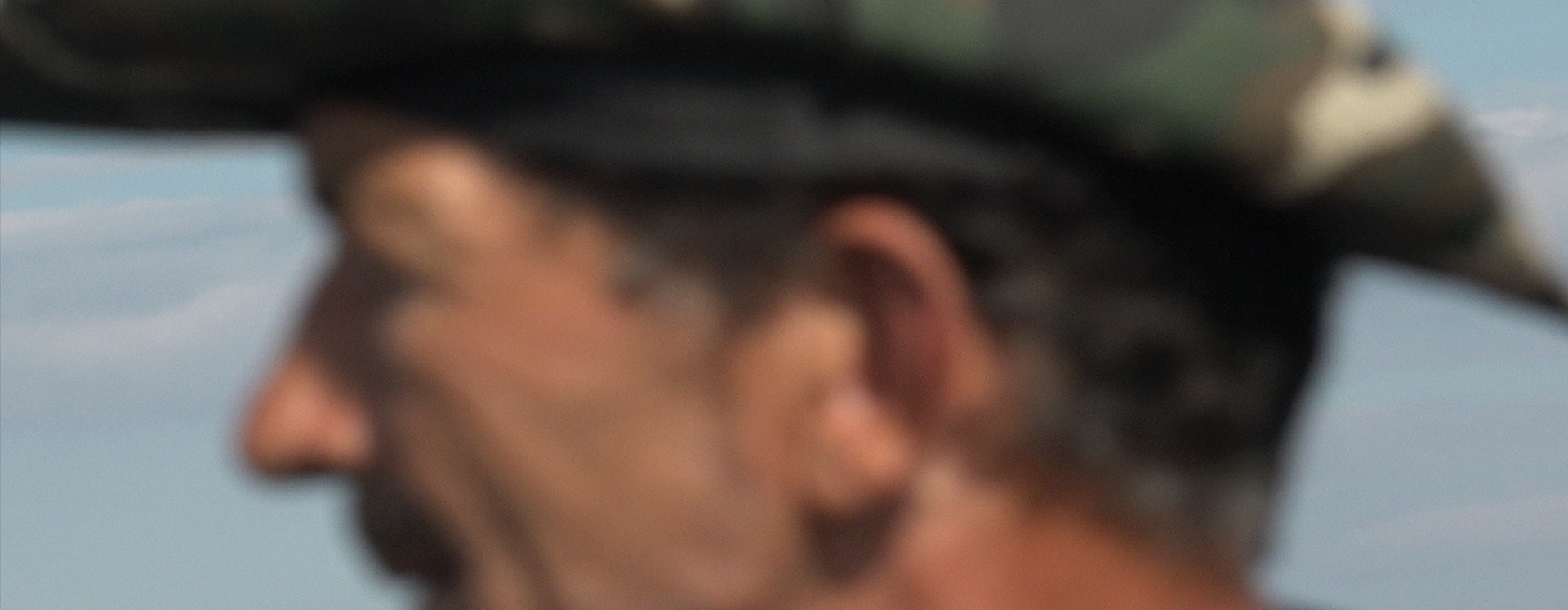Looking for horses
My practice comes out of a difficulty with verbal language.
Stuttering as a child and a teenager left me in a way voiceless.
I wonder what language means with regard to closeness:
language as something that lives between you and me.
The camera, also something that can live in between you and me.
So my question is: Is there such a thing as an intimate camera?
I wonder whether we can go beyond just ‘capturing’,
and push the camera into a space of creation, a move I call:
from filming intimacy to filming intimately.
Stefan Pavlović (Master of Film) investigates in his research Eye see too, in You - Friendship beyond Language whether the cinema apparatus can overcome the limits of verbal language. Can the camera be a tool to practice intimacy with and through? Can we look together?
His feature film in process, Looking for Horses, shows a growing friendship between the filmmaker himself and Zdravko, a fisherman he meets by a lake in Bosnia, who lost most of his hearing during the war in former Yugoslavia and later on also his sight in one eye, when a battery exploded. Even though different in age and background, Stefan recognises Zdravko’s isolation and difficulty to connect to others. Within this growing bond, he explores the possibilities to use the camera as a tool to overcome the gaps in communication, the silence and the lack of common language between Zdravko and himself.
Stefan: 'Two people, sitting in a boat together, not speaking the same language, but eager to listen to each other, addresses an important issue of our time. I think one of the biggest threats of today is the clash of subjectivities, conflicts of view-points, being stuck in one’s own narrative. We have trouble empathizing, or even acknowledging that there might be a different experience to our own. This causes separation and prejudice, and thus nationalism and racism. In a time of increasing cultural, political tensions, it seems to me that the (mis)communication, stutters, hesitations and other attempts of communication offer a wide field of important insights. There is a lot of meaning in these in-between spaces; it creates room for the other senses, for other forms of interpretation and connections. I see miscommunication as a relevant, creative and anti-dogmatic space, a place to learn, to take different viewpoints.'
Recommendations
Mieke Bernink, professor and Head of Master of Film, Netherlands Film Academy: 'Stefan is a poet with images. His movie and his 'visual abstract' (the audiovisual summary of his research) testify to a great sensitivity to the medium and to human relationships. In a world that is becoming more and more torn apart, he searches for and finds the other. To that end, he questions the power relationships intrinsic to the medium. And with his eye for detail, the intelligent way in which deals with language and subtitles, and his beautiful, subtle sense of humour, he conquers the heart, in an unsentimental way, of every viewer.’
Celine Linssen, (script)writer: 'Stefan has found a genuinely new cinematic manner of involving the viewer in his quest for cinematic intimacy. I was happy to have accompanied him.’
From the jury report of the Graduation Prize: 'In Looking for horses, Stefan Pavlović not only uses the camera as a means of making a film, but also as a means of communication in a social study. He manages with this, and through the way he makes use of the subtitles, to create a layered document that is fascinating on a social level and enormously moving on a personal level. The fact that he not only manages to make real contact with Zdravko by means of the camera, but that the roles are also reversed, is proof that his use of the camera genuinely manages to stimulate contact. A disarming result of a unique experiment.'




